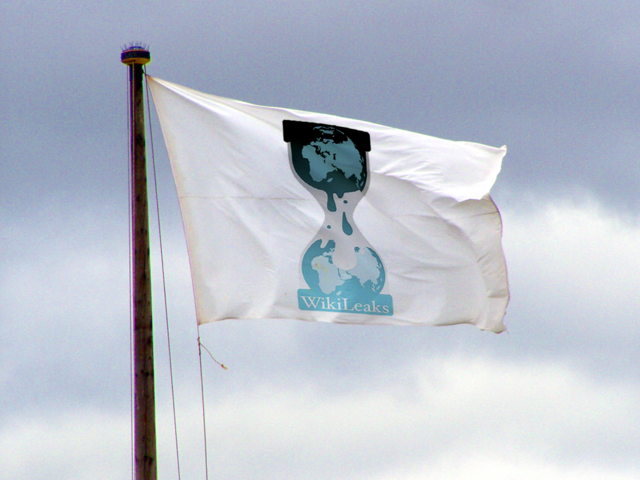As a big fan of transparency and citizen empowerment I had initial enthusiasm about Wikileaks, the government-embarrassing leak website run by Julian Assange. Not only did the documents they leaked highlight government abuses like the war crimes committed during the Iraq war, they were also seemingly fair, airing a little bit of every country’s dirty laundry. However, I have increasingly lost this faith, bit by bit, as Wikileaks becomes more involved in the 2016 presidential election. What once seemed like a triumph of citizen activism has turned into yet another political tool, one almost as concerned with distorting information as it is with revealing it.
It all began when Julian Assange made his opposition to Hillary Clinton’s presidential campaign clear, suggesting that she would bring about “endless, stupid war” and that his upcoming leaks were aimed at hampering her candidacy. His bias against Clinton, apparent since 2010 when he claimed she should resign because of leaks about the state department, clearly played a big role in his decision to release the latest round of emails. This open opposition seemed to conflict with Wikileaks’ claim to neutrality, illustrating that they had very specific political goals in mind.
In addition to clear bias against Clinton, evidence has suggested that Wikileaks may have even allied themselves with other forces. Evidence is growing that the latest leaks most likely came from hacks carried out by the Russian government. Despite Assange’s denial that he knew Russia had anything to do with hack, the fact of the matter is that he is assisting the attempt of an outside government to influence our elections. Further, Donald Trump confidant Roger Stone’s foreknowledge about the latest set of leaks suggests that he is in communication with Wikileaks, raising the possibility that Assange may be actively working to get Trump elected.
If the basic intent of Wikileaks’ anti-corruption message was tainted when they started to push for one side, the leaks themselves didn’t help. In addition to being presented in a disingenuous manner, the past few leaks contained little genuinely shocking information. The first round of leaks — somewhat embarrassing emails revealing how many of those working within the Democratic National Committee supported Clinton over her opponent, Bernie Sanders — did reveal some troubling attitudes among DNC staff but not the kind of damaging conspiracy Assange had promised. The same can be said about the latest email leaks from Clinton campaign chairman John Podesta. In many ways, these releases seemed more aimed at creating exaggerated headlines than at exposing any kind of real corruption.
Further, the fact that Assange can pick and choose what to release opens the door for the leaks to now be used in a bullying, threatening manner that is potentially dangerous to democracy. With Assange, a biased source, maintaining control over who the next victim is, he can choose to only release information based on his personal feelings about the target. As it has become absolutely clear that Wikileaks is not neutral, it leaves us with little reason to believe the organization is really concerned with everyone’s best interests. By choosing sides, Assange has been able to turn his undue power and influence into a threat he can deploy against those with whom he disagrees.
Wikileaks, projecting itself as the digital Robinhood seeking to tell the people about government corruption, has increasingly established itself as a biased, unreliable and even deceiving source in the 2016 presidential election. From actively working against one of the two major US presidential candidates to helping disseminate information that came from a hack by a foreign government, Assange has destroyed his organization’s credibility as a legitimate source of information. As long as Wikileaks remains biased, it will be impossible for it uphold the values of transparency and freedom of information that it claimed to fight for.


